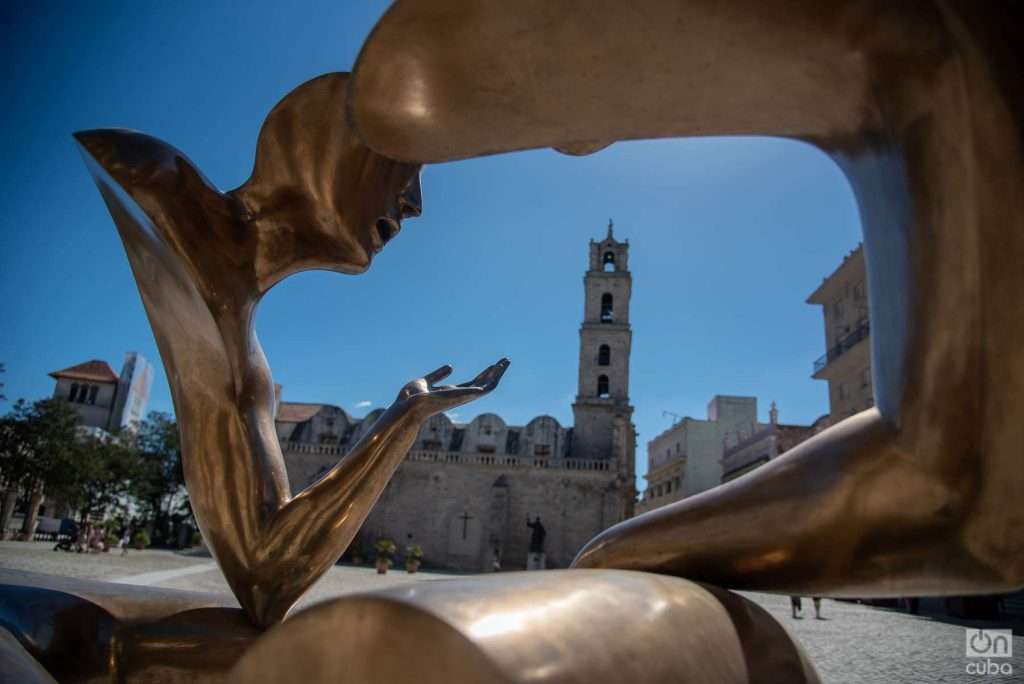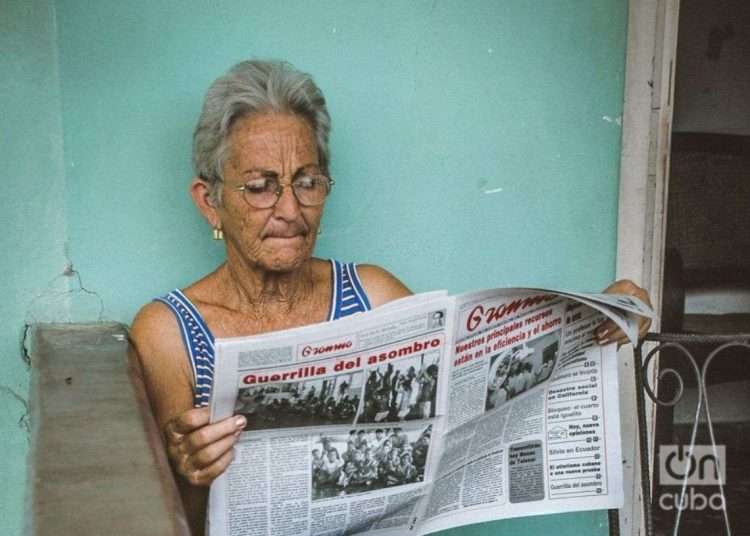In December 2022, the National Assembly of People’s Power (ANPP) had to submit for discussion and approval the Social Communication Bill, announced on July 11 of the same year.
However, on December 12 it was reported, at the proposal of the Council of State, that it had been decided to postpone the legislative process of this Law. Specifically, the Council of State requested to delay the approval due to its “complexity” and the changes to which it had been subjected in the last few months; modifications that would not have been made fully known to parliamentarians, as explained by deputy Esteban Lazo, President of the ANPP.
Lazo added that the Bill could finally be debated in February or March 2023, to allow time for greater participation of specialists and citizens, as well as to incorporate the pertinent changes into the text.
In what follows, I share preliminary observations on the document, subject to the modifications that will be made in the two months remaining for its presentation to the National Assembly.
Unprecedented law in Cuba
First of all, I highlight the novelty. Never before had an attempt been made to regulate through legislation in Cuba everything related to communication, including the structure, organization and management of the written, radio and television press and digital media; in addition to legislatively developing the right to freedom of the press, as provided in article 55 of the Constitution of the Republic.
Second, and as a consequence of the foregoing, the enormous extension of the scope of regulation: nothing less than “the processes of social communication in the organizational, media and community spheres, for political, public good, organizational and commercial purposes, both in the physical and digital public spaces.” In addition, “the freedom of the press recognized in the Constitution and the principles of organization and operation for all the means of social communication in the country.”
It is quite a challenge that will require major changes, not only in the regulatory sphere but especially in the cultural sphere, in which age-old authoritarian traditions and deep-rooted bureaucratic practices survive.
Third, the tremendous relevance of the rights that are regulated: nothing less than the right to information and freedom of the press (the latter so important that Marx wrote that “without freedom of the press, all other freedoms are illusory” and Rosa Luxemburg left for posterity that “without freedom of the press, without freedom of expression and assembly, without the free struggle of opinions, the life of all public institutions is extinguished, it becomes a caricature in which only the bureaucracy remains as the only active element.”
Right to information and freedom of expression in International Law
The UN General Assembly proclaimed since its inception that “…freedom of information is a fundamental right and the cornerstone of all the freedoms to which the United Nations is consecrated….”
Article 19 of the Universal Declaration of Human Rights of 1948 indicates that “everyone has the right to freedom of opinion and expression; this right includes freedom to hold opinions without interference and to seek, receive and impart information and ideas through any media and regardless of frontiers.”
The United Nations have repeatedly declared both the right to information and freedom of expression as pillars of political participation in a democratic society and guarantees of citizen control over state power. Even more so in the midst of the rise of the Internet and the digital world, which has democratized access to information, and allowed citizens to go from consumers of information generated by others to producers and suppliers of it.
In this sense, the United Nations recognizes access to the Internet as a human right, especially since it was announced in 2016 that “measures to prevent or intentionally interrupt access or dissemination of information online (are) a violation of international human rights law.”
Later, on July 4, 2018, the UN adopted the resolution on human rights on the Internet, in which it urged States to promote and facilitate access to the Internet and the development of communication media in all countries. It recognized that the right to information constitutes an inviolable principle, of which no human being should be deprived. Therefore, it promotes an egalitarian approach in terms of information and expression, condemning all types of prior censorship.
This has led many countries to approve and enforce laws on the right to information and communication, access to public information, and regulation of the audiovisual media system, especially in the last decade (Argentina, Ecuador, Iceland, Spain, Mexico, Uruguay and others).
Cuba, in this sense, is up to date and updates its regulations on these matters. It is a matter that cannot be postponed, even more so under current conditions, given the rise of multimedia communication in cyberspace and the expansion of social networks, boosted by the coronavirus pandemic.
A long-awaited Law
The process of elaboration of the Social Communication Law began several years ago. Various groups and sectors of Cuban society have been demanding for a long time the need for a Press Law in Cuba, in order to precisely establish the scope and limits of freedom of the press (inseparable from the right to freedom of expression). . The law would make it possible to combat secrecy, arbitrariness or censorship, practices that have been more the rule than the exception, precisely because of the absence of clear and precise legal regulations on the matter.
Faced with this, the first question is how the Project regulates (beyond organizational matters and the institutional structure that should promote access to information and the exercise of freedom of the press and expression), what is related to the aforementioned issues and its coherence with the values and principles of the Constitution, as well as with the international commitments of the Cuban State.
It is perhaps the most relevant issue, if the Law is conceived as an instrument to carry out the provisions of the Constitution, to facilitate, promote and broaden the exercise of the right to communication and those related to it (such as the right to information and freedom of the press); instead of — as it appears to be in some respects — limiting, restricting or even discouraging the exercise of rights by citizens.

Legal definitions: vague terms and some paradoxes
The projected Law begins by defining its object of regulation and the concepts included in it (arts. 1 and 2), the Social Communication System and its management (arts. 3 and 4), and its purposes (art. 5); as well as the competent authority on it (art. 6).
However, from the Whereases (the explanatory statement), a paradox is noted: the first Whereas recognizes that the Constitution establishes a society “in which everyone can create, consult, use and share information and knowledge.” But the third, when referring to social communication, indicates that this “enables people to request and receive truthful, objective and timely information from the State, and to access that generated by State bodies and entities,” which reduces its reach. Restricts you from requesting, receiving, or accessing information; but it says nothing about creating or using it, which has far-reaching consequences from the beginning of the future legal text.
Article 2 defines social communication as “transversal to all human relationships in society,” and adds that it “facilitates the exchange of data, information, knowledge, ideas, messages, meanings and meanings between people,” as well as between them with groups and organizations, and that “contributes to interrelation, dialogue, debate, popular participation and consensus.”
Immediately afterward, it defines communication processes as “human, group, organizational and social practices that materialize in the creation, production, distribution, circulation and exchange of content.” In article 3.1 it defines the Social Communication System (remember: the main object of the Law, according to article 1.1), as “the integrated and interrelated set of communication processes and actions, regulations, self-regulations, structures, human resources, materials and financial, which are established among all State bodies, entities, mass and social organizations, associative forms, media organizations and other economic and social actors.”
As can be seen, it omits citizens as subjects of the regulated System, which contradicts the very definition of social communication established in art. 2. It might seem like a mere detail, but it indicates a profound contradiction: social communication and freedom of the press, objects of the law, are conceptually inseparable from the rights to freedom of thought and expression and, of course, are fundamental rights, recognized in art. 54 of the Constitution and exercised in the first place by human beings, by natural persons.
However, the bill omits them when defining the System and does not say anything about a related right as important as freedom of expression.
On the other hand, the bill is overloaded with vague, abstract and emotional terms, something that should be avoided in the drafting of laws due to the enormous dangers it entails. It would allow the bodies in charge of the application such a wide margin of action that it could easily lead to arbitrariness.
As an example, the cumbersome and extensive art. 5, which establishes the purposes of the law in no less than 26 paragraphs (which initially threatens its effectiveness: whoever covers a lot does not squeeze), using expressions such as “to safeguard and exalt identity, culture, values, symbols, the history and humanist ethics of the nation” (paragraph c). On the discursive and rhetorical level, it can work, but on the legal level, it poses enormous problems due to the vagueness and abstraction of the terms used.
It also happens with subparagraph d) which demands “to promote… feelings of national pride…,” another door open to arbitrariness, not to mention the excessively nationalist aroma it gives off. The expression ‘national dignity’ would be preferable.
Subparagraph g) of the article itself declares “promote the exercise of the freedom of expression of people through media, supports and communication channels….” In the first place, when it comes to the exercise of rights, and especially one as crucial as that, the duty of the State is not to promote it, but to guarantee it. Then, it is striking that it is the only mention of freedom of expression in the text, even though it is inseparable from the right to communication and freedom of the press.
The same, with greater emphasis if possible, can be said of article 11, section 3, subparagraph a) which establishes that the contents of the information may in no case be “used to make propaganda in favor of war…, terrorism, violence and hatred between people, with the aim of destabilizing the socialist rule of law.”
Once again, generic and emotionally charged terms are used (“propaganda,” “destabilize”) that allow such broad interpretations that they open the door to possible arbitrariness.
More of the same in part c). “Used to give morbid treatment to accidents, criminal acts, disasters or other similar events.” The expression “morbid treatment” is so emotional and imprecise that it would justify any censorship. The same can be said of subparagraph e), “appeal to fear, superstition or provoke aggressive behavior….” We are talking about a law that will regulate the right to information, freedom of expression (without explicitly declaring it) and freedom of the press.

The regulation of the right to communication and its areas
In its Title II “On the management of social communication processes,” the bill regulates what refers to communication in the organizational field (Chapter I), the media field (Chap. II) and the community (Chap. III). We are facing a detailed and necessary formulation that includes items as important as communication processes in organizations, the obligations of those responsible, the rights and duties of their professionals.
In his Chap. II, the rights and duties of media professionals are established, as well as the obligations and responsibilities of the media themselves.
Finally, in Chap. III, it regulates communication at the community level, of which it is stated that “it places sustainable human development and people as centers of communication practices and processes, promotes transformation based on social development and bases its management on common interests.”
However, the competence over community communication is defined (art. 47.1) as follows: “The management of community communication by the Municipal Assemblies of Popular Power, the Administration Councils and the Popular Councils is developed from the interests of the population and the strategic priorities of the territory.”
That is, community communication is managed by the State and the Government at the local level; which, strictly speaking, supposes restricting its community condition by turning it into a competence and function of the local organs of state power. Again, the authorities are seen as producers and the public as receivers of information.
Chapter IV, below, regulates social communication in cyberspace. In article 52, the statist logic appears again: “State bodies, media organizations and the business system manage social communication in cyberspace.”
No mention of citizen initiatives or social groups, which are the ones that have used cyberspace to develop practices of communication, dialogue, collaboration and forms of public action not subject to the control of the State or large companies.
There is no doubt about the novelty, necessity and opportunity of the Social Communication bill, as well as its complexity as it has the ambition to integrate the entire communication system of the country into a coherent and comprehensive regulation, in addition to legislatively developing what refers to the freedom of the press.
However, the aspects mentioned (and those that will surely be pointed out in the debates) should be reviewed both in form and substance. Paradoxes and ambiguities limit and restrict the exercise of fundamental rights recognized in the Constitution, under the justification of its regulation and legislative development. It depends on the fact that the Law can fulfill its mission of regulating without limiting, protecting without excluding and guaranteeing without invading, the exercise of the constitutional rights that it regulates.










